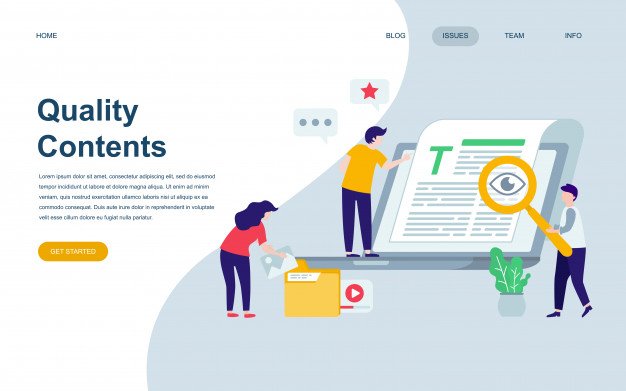Getting ranked on Google isn’t easy. If you want to simplify things, you could just say it’s all about delivering the most relevant results to any given search query. For the cynical, this can include paying Google to showcase your ads for certain types of searches. However, this is an over-simplification of the real situation, because Google’s algorithm is more complex than what many might assume.
This does not mean there are no techniques you can employ to get higher ranks, though. There is enough understanding of how Google works for a business to increase their rankings by gaming the system. There are methods you can use that can boost your website, reaching more customers and maybe even improving your conversion rate.
What Makes You Stand Out?
Your first move is to focus on what makes you unique. Is it fast, low-cost shipping to Amazon FBA? Is it a product lineup that is uniquely your own? Focus on what makes you stand out from the market, and align your website’s content with keywords that highlight that. Differentiate yourself from your competitors. It could be a unique property, special shipping options, or just plain geography.
Your Keywords:
Find the keywords that best work for your website. These will likely be based on or directly be the first words that you expect someone to type into the search box on Google. Don’t use just one, though. For any given niche, you’ll get about 40 to 50 good keywords to choose from.
Sprinkle, Don’t Splatter:
Use multiple keywords, but don’t overstuff the site with them. Keep the placement relevant and focus on making the content readable to a human being. This means the placement has to be smooth and work with the flow of the text, rather than randomly inserted.
Build Your Links:
Do you know why Wikipedia is so high in search engine ranks? It’s perhaps the single most linked-to site in the world. A network of websites linking to your website helps improve your rankings. However, the quality of the link is more important than the quantity. A link to an online casino from an authority like the Nevada Gaming Control Board is worth more than hundreds of links from random people.
Better Quality Content:
Content is important. You want to have valuable content on your site because it drives a part of Google’s search systems. A combination of videos, photos, and content is going to be the key tactic here, merging them seamlessly to tell your brand’s story and sell your brand’s values. The consistent output of quality content will help your site stand out and rank on Google’s search results.
Ease of Use:
Make the website user-friendly. We do not mean this solely from a technical perspective, where you design it to be easier for Google crawlers to read. We mean to make it easy for humans to navigate and find things on the site. Optimize for both the big platforms like desktops and laptops, as well as mobile platforms. Make the site load fast and have numerous internal links so navigation requires as few clicks as possible.
Social Media is Your Friend:
Tap social media. People are obsessed with social media and access more content through those networks than ever before. You don’t want to be left out. The social media profile and accounts of your business can end up ranking higher than your website because social media platforms can double as search engines in certain circumstances. Take advantage of that.
Be Patient:
Rome was not built in a day. A high rank isn’t going to happen overnight, either. It takes time and concerted effort to get that high. Even if you have the most extensive, authoritative links and the best content in the world, shifts in search rankings don’t occur overnight. You need patience and perseverance, instead of forcing things to speed up.
Data Analysis:
Analyze the data that you get. In all conflict and competition, victory favors the ones who are better informed. Get your metrics and data and analyze it, or get experts to go through it and analyze things for you. The more you understand about how your site is doing, the more you have to work with to improve your standing. If you neglect the analysis, you leave yourself blind.
Don’t Settle For Second Best:
Finally, don’t settle for the low rankings. The average user only ever sees the first page of search results, and only the first ten get any significant clicks. This is where you want to aim, not for anything less. Build your entire strategy with this high goal in mind, because anything lower means that you’re setting yourself up for failure.
Conclusion:
Optimizing your website to rank higher on a search engine is not easy. There are plenty of terms to learn, jargon to understand, and techniques to master. However, it can be done and it is very possible to achieve a high rank on a search engine, even in a crowded niche. You just have to know what to do and how to do it.
Read Also:


























